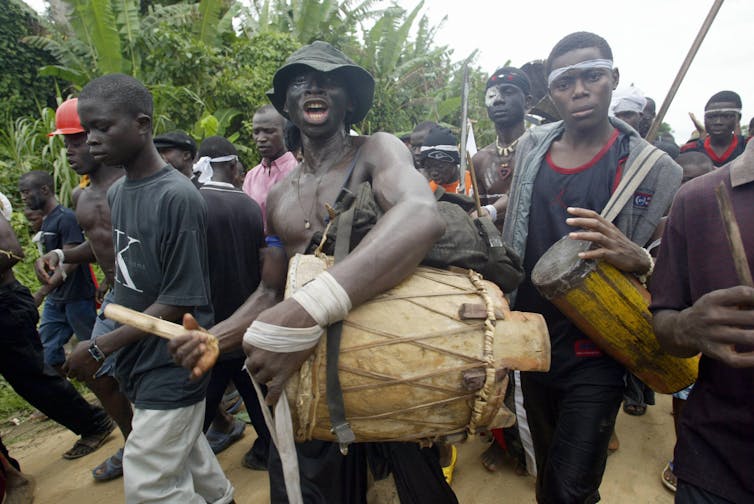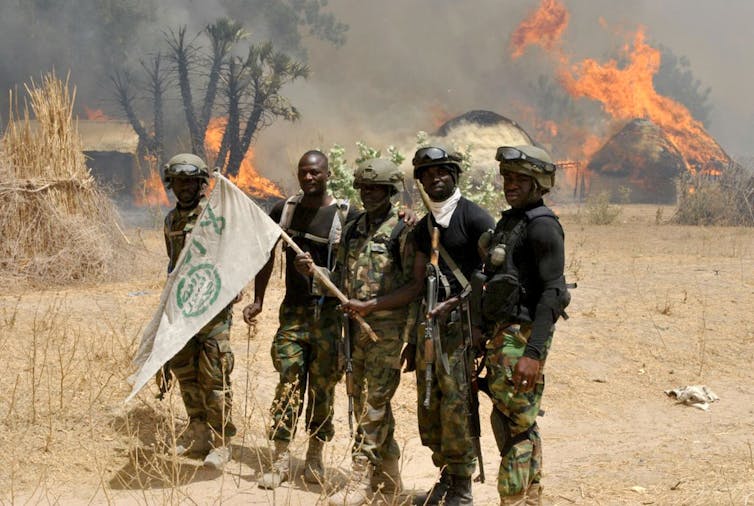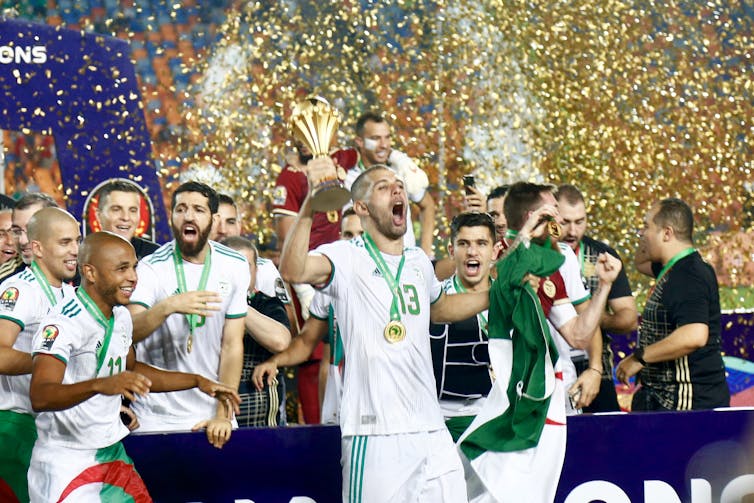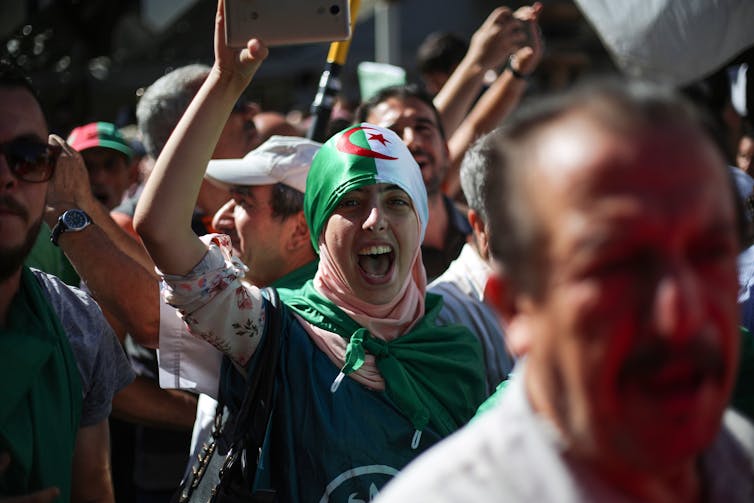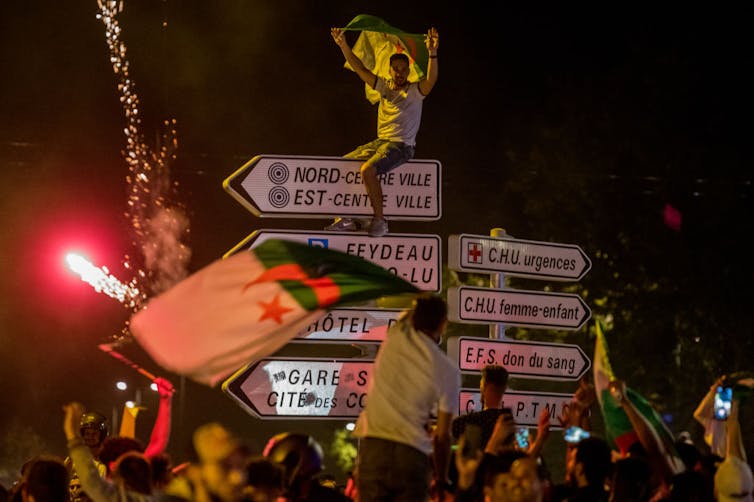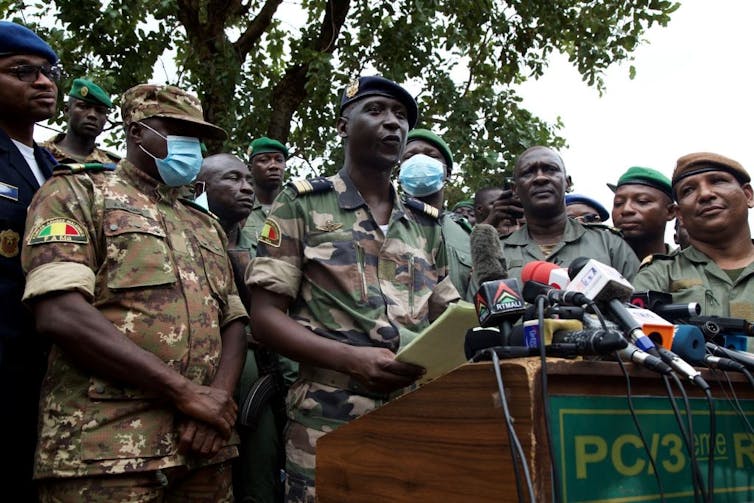
Soldiers have ousted Mali’s President Ibrahim Boubacar Keïta who has now resigned, alongside the country’s prime minister. Moina Spooner from The Conversation Africa asked Bruce Whitehouse, who has carried out studies on coups and violent extremism in Mali, to share his thoughts on what brought on this coup, and what needs to happen next to ensure stability in the country.
What laid the ground for the recent coup in Mali and who led it?
There are many long-term factors, but the immediate reason for the coup was Ibrahim Boubacar Keïta’s dismal performance as president. When first elected to the office in 2013, Keita had the ideal resume, having held nearly every top post in the Malian government (foreign minister, prime minister, speaker of the National Assembly). Yet he subsequently did not address the existential threats to Mali’s people and the state, from political violence to corruption.
His 2013 campaign promise to root out corruption and restore the country’s dilapidated sovereignty quickly proved hollow. Scandals over his acquisition of a new presidential jet and shady defence contracts gave the impression that his administration would be no more transparent or upright than those that came before.
Insecurity was already severe in Mali’s northern regions when Keïta took office, mainly due to jihadi militants and criminal gangs. In the subsequent seven years the situation steadily worsened as roadside bombings and raids on government targets (including military and police posts, prisons, and administrative buildings) spread to other parts of the country. Many troops have been killed by militants, and soldiers lacked the supplies and vehicles they needed to carry on the fight.
The violence resulted in a major humanitarian crisis. By the end of 2019, the UN estimated that 3.9 million people were in need of assistance and protection – an increase of 700 000 since the beginning of the year.
So ordinary Malians, and military personnel alike, were frustrated with Keïta’s government. As a consequence, since June there were persistent and massive street protests in Bamako, the capital, demanding Keïta’s resignation.
We don’t yet know much about the officers who led the coup. They call themselves the National Committee for the Salvation of the People and appear to be more highly ranked (colonels and possibly a general) than the officers who led previous coups in Mali. Colonel Assimi Goita has announced himself as the new leader.
This is not the first time Mali’s had a coup. The most recent one was in 2012 and, like this one, resulted in military control. How would you rate the transition to a civilian government after the 2012 coup?
In many ways, the 2020 coup resembles its 2012 predecessor. Both began as mutinies in Mali’s largest army base in Kati, on the outskirts of Bamako. The international response to both coups has been similar: statements of condemnation and promises of sanctions by the West African regional body, ECOWAS. And both seemed to garner quick popular support. A poll conducted after the 2012 coup showed that about two-thirds of Bamako residents backed the junta. The mass protests leading to this coup indicates that many Malians also support change.
One big difference is that the 2020 junta had President Keïta and his prime minister arrested on the first day and the president announced his resignation soon after on television. By contrast, the 2012 junta never managed to capture the president they ousted (Amadou Toumani Touré), leaving the coup’s outcome uncertain for several days.
Though the transition to civilian rule in 2012 appeared to happen relatively quickly - it took about a month for ECOWAS to negotiate a handover to an interim civilian government - it masked continued interference from the military who retained considerable power behind the scenes for many months. For instance, just a few weeks after the coup, the military orchestrated a mob attack that sent the interim president abroad for medical treatment.
This situation endured until 2013, when the French military intervention against jihadi militants began. From my own analysis, the presence of French troops discouraged the Malian military from meddling too openly with politics.
In August 2013, President Keita was voted in as president and, until now, seemed to have been able to keep the military in check, but military officers leading the coup appear to have been emboldened by the street protests of the past two months.
How should the transition to a civilian government this time around be handled to ensure political stability in the country?
The transition to a civilian government won’t be smooth.
There is significant public distrust in Bamako toward politicians. Under Mali’s 1992 constitution, the speaker of the National Assembly is supposed to become interim president and organise new elections after a president’s resignation, but President Keïta dissolved the body prior to resigning. This leaves no obvious successor.
The constitution also calls for new elections to be organised within a very short period - just 40 days - after the establishment of an interim government. Meeting this deadline proved impossible in 2012 for Mali, a poor country torn apart by conflict, and would be equally impossible in 2020.
This leaves the path forward uncertain and requiring negotiation between the junta, Malian civil society groups and political parties, foreign governments, and international bodies.
What are the likely regional implications, if any, of this coup?
West African governments don’t like to see a president, particularly an elected one, toppled from power by his own military. ECOWAS will continue issuing strong statements and talking about sanctions. This is also because heads of state throughout the region don’t want their own military officers getting any ideas about emulating what happened in Mali.
Yet we saw in 2012 that ECOWAS had neither the will nor perhaps even the capacity to isolate Mali economically. I don’t expect that has changed, but the stakes are different this time: the Sahel is a much more dangerous place in 2020 than it was eight years ago. I would expect France and the UN, which have thousands of troops in the country, to be the real drivers of an international response to this coup.![]()
Bruce Whitehouse, Associate Professor, Lehigh University
This article is republished from The Conversation under a Creative Commons license. Read the original article.







